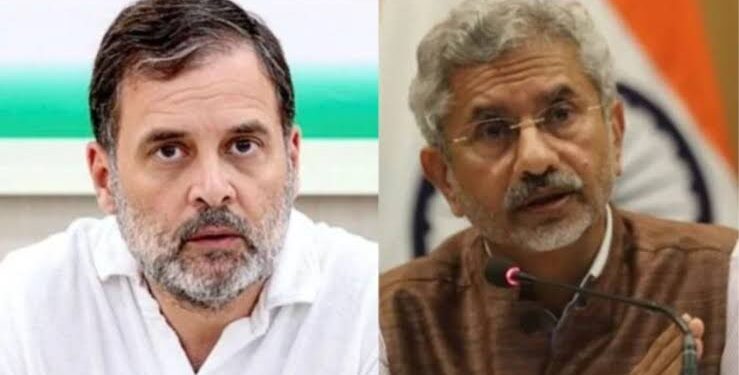C Pradeep Kumar
The horrific terror attack in Pahalgam on April 22, 2025, which claimed the lives of 26 innocent civilians, including Indian tourists, was a grim reminder that cross-border terrorism remains an ever-present threat to India. In a swift and calibrated response, the Government of India launched Operation Sindoor, a precision military strike that eliminated 14 operatives of Jaish-e-Mohammed (JeM) in Bahawalpur, Pakistan. Among those killed were 10 close relatives of JeM chief Masood Azhar and four senior aides.
While the nation mourned the dead and saluted the armed forces for their decisive response, some political actors chose the moment not for unity, but for opportunism. Chief among them was Rahul Gandhi, who irresponsibly alleged that Prime Minister Narendra Modi and the Ministry of External Affairs had “tipped off” Pakistan in advance, allowing Masood Azhar to escape.
This claim is not only factually unsubstantiated but dangerously reckless. It casts aspersions on India’s intelligence agencies, insults the professionalism of its armed forces, and risks damaging the country’s international credibility.
Operation Sindoor: The Facts
Intelligence gathered by RAW and NTRO confirmed the presence of high-value targets—including members of Masood Azhar’s family—at JeM safe houses in Bahawalpur. On May 7, 2025, the Indian Air Force executed Operation Sindoor, conducting precision strikes that eliminated 14 individuals associated with JeM.
Although Azhar reportedly escaped, there is no official confirmation on when or how. Theories about prior warning are purely speculative, with no evidence offered. None of the allegations made by Rahul Gandhi are supported by intelligence leaks, documents, or credible sources.
Rahul Gandhi’s Claims: A Dangerous Political Gimmick
By suggesting that the Prime Minister or the MEA colluded with Pakistan, Rahul Gandhi has crossed a line no responsible opposition leader should.
His claim is:
- Unsupported by any evidence—no document, intercept, or witness has been produced.
- Strategically irrational—no government would willfully sabotage its covert mission.
- Diplomatically damaging—suggesting complicity with a terror state undermines India’s credibility globally.
If his accusation were true, it would amount to criminal conspiracy and treason. Such a serious charge cannot be tossed about in press conferences without concrete proof. Doing so weakens India’s internal cohesion and emboldens its enemies.

A Pattern of Undermining National Security
This is not an isolated incident. Rahul Gandhi has displayed a consistent pattern over the years:
- After the 2016 surgical strikes, he demanded “video proof” from the army.
- After the 2019 Balakot airstrikes, he accused the Prime Minister of politicizing the armed forces.
- Now, after Operation Sindoor, he alleges prior notice to Pakistan—essentially giving cover to a terror state.
Coincidence? Or is this part of a larger strategy to question and delegitimize every Indian military response against Pakistan-sponsored terrorism?
What’s at Stake: Not Just Votes, But National Morale
Each time a political leader casts doubt on the integrity of India’s armed forces, intelligence services, or diplomatic apparatus, they do more than just attack the ruling party. They erode the morale of the very people who guard our borders and fight our battles.
At a time when India is rallying global opinion to designate Pakistan as a terror-sponsoring nation, such careless statements hand ammunition to the enemy.
Time to Set Boundaries in Political Discourse
As concerned citizens and members of the Law-Abiding and Enforcing Citizens (LAEC) collective, we affirm the right to dissent—but not the right to defame.
We propose the following:
- The Election Commission of India must issue strict guidelines to curb unverified national security allegations during campaigns.
- A Parliamentary Ethics Committee should examine if repeated, baseless claims on sensitive military matters constitute breach of privilege or contempt.
- Political parties must back their allegations with verifiable evidence or issue public apologies.
Speak Up—But Not Against the Nation
Rahul Gandhi and the Congress party have every right to challenge government policy. But they must do so with responsibility, not recklessness. National security is not campaign fodder. Nor can military operations be dragged into the swamp of political point-scoring.
Opposition is vital in a democracy. But it must not come at the cost of weakening the country’s resolve or aiding its adversaries. In trying to oppose the Prime Minister, let us not end up siding with the enemy.
India needs critics—but of the courageous kind who stand with the nation, not over it.






